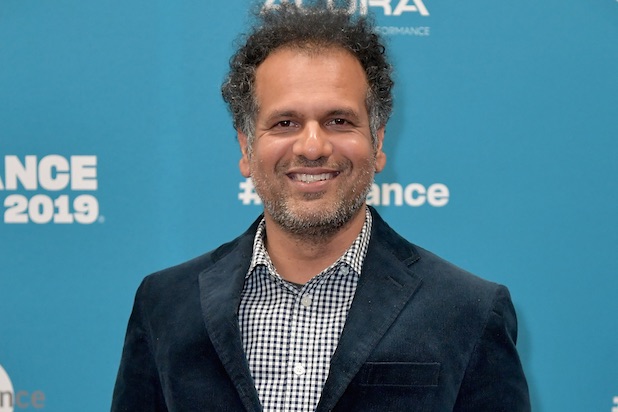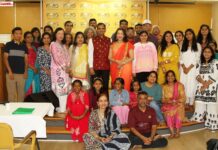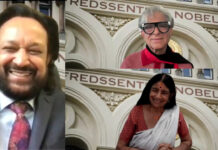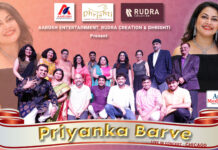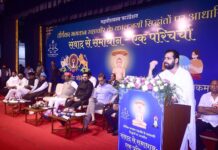Following is an excerpt from an interview with screenwriter Sarfraz Manzoor of Blinded By the Light. The film is based on his memoir, Greetings from Bury Park, which was published in 2007 by Bloomsbury Publishing.
The character of the protagonist in the film, Javed, is based on Sarfraz himself who emigrated to Britain in his childhood from his birth country of Pakistan. Sarfraz Manzoor is a seasoned journalist who has also worked in broadcast television and made documentaries that have been screened on Britain’s Radio 4. His articles have appeared in newspapers such as the Daily Mail, The Guardian, The Independent, and The Times.
India Post had a conversation with the writer. (This interview is not verbatim though some quotes have been included. It has been edited and paraphrased.)
India Post (IP): How much of you is in Javed (the main character)?
Sarfraz Manzoor (SM): The film is based on the 2007 book Greetings from Bury Park that I had written. So the surroundings, family, they are all authentic. I really did write poems when I was 16. I did want to be a writer. My dad really did work in a factory; my mum did sew clothes until 1 a.m. Some of it is fictionalized
IP: What about the girlfriend?
SM: No, that was fiction. I was not allowed to have a girlfriend when I was 16
IP: What has been your greatest challenge and your biggest reward as a writer?
SM: My greatest challenge was writing a screenplay. I worked on it for five years. My greatest reward has been seeing myself listed as the first in the credits, and having the film travel all over the world, that is an unbelievable experience
IP: Did you have to outright rebel like go out of the house or something?
SM: No, there was too much guilt. My parents always made me aware of the sacrifices that they had made. My dad was the only one to leave his family in Pakistan, he worked really hard in Britain before mum and my siblings and I came over. So I was very subtle. I did not want to upset my parents, at the same time I wanted to do what I wanted
IP: How much has the immigrant experience changed?
SM: Well, due to social media, you are not that alone. As a writer, you can just post your work on a blog and not wait for a publisher. I wrote poems when I was 16, and no one was ready to publish them. But, the struggle between pleasing your parents and pleasing oneself and what society tells you, that you don’t quite belong, that has not changed much.
IP: What is your advice to aspiring writers?
SM: If you don’t take it seriously, no one else will. I was busy, I had another job, my journalistic work. One day, my wife said to me, “You don’t take it seriously, so why do you expect anyone else to take it seriously?” That was when I decided. Getting this film made is the most important thing for me
IP: What was your family’s reaction to the film?
SM: They haven’t seen it yet. The premiere is next week so you have seen it before them. (The interview was conducted last week.
IP: What was their reaction to the book?
SM: They said, “You haven’t done anything different, so why are you writing about this (your story)?”. They were surprised by the honesty.
IP: What kind of work do you lean towards?
SM: In all my writing, my journalistic work, my writing starts off as something personal and becomes something larger than myself. For example, I wrote about my wedding, which was one particular event, and then it became something bigger.
(As told to Lakshmi Iyer)

